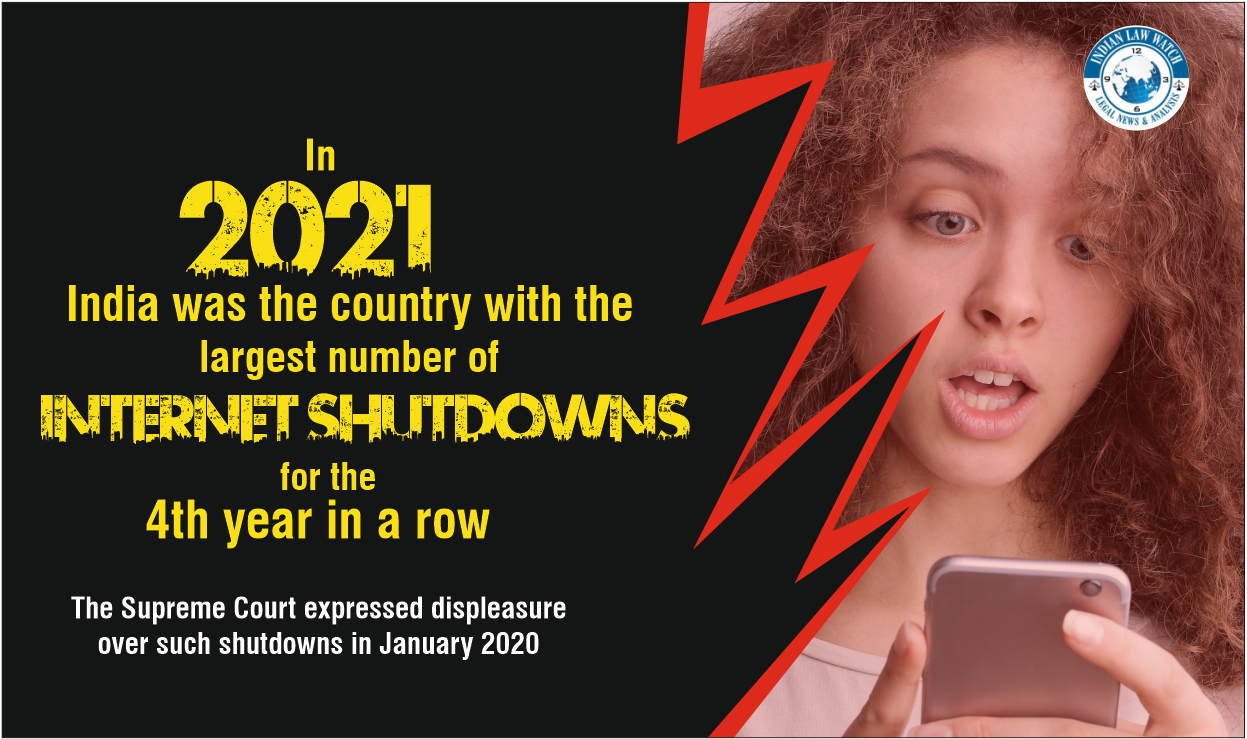

Internet shutdowns are currently imposed under the Temporary Suspension of Telecom Services (Public Emergency or Public Safety) Rules, 2017.
In 2021, India was the country with the largest number of internet shutdowns for the fourth year in a row for reasons ranging from curbing protests to preventing cheating, according to tech policy think tank Access Now. Eighty-five of the 106 shutdowns pertained to Jammu and Kashmir alone.
The draft Indian Telecommunication Bill, which was released on Wednesday last, proposes suspension of internet services in the interest of public safety while ensuring the rights of the citizens despite concerns civil society, internet freedom activists, and a parliamentary panel have raised over such provisions.
“The Bill provides an enabling framework for the Central Government to address any situations of public emergency, public safety, or national security concerns. These provisions provide for the time-bound limited suspension of transmission of messages, or of provision of telecommunication networks or services while ensuring the rights of the citizens of India,” says the explanatory note to the bill.

- The proposed legislation says the government can “direct that communications or class of communications to or from any person or class of persons, or relating to any particular subject, transmitted or received by any telecommunication network be suspended” in the interest of the sovereignty, integrity or security of India, friendly relations with foreign states, public order, or preventing incitement to an offence.
- It seeks to allow the taking over of the control and management of, or suspending the operation of, or entrusting any authority of the government to manage any or all of any telecommunication services, or any telecommunication network or telecommunication infrastructure connected with such telecommunication services.
- The draft covers conventional phone calls, text messages broadband connections and over-the-top applications, including WhatsApp defined as telecommunication services.
- Internet shutdowns are currently imposed under the Temporary Suspension of Telecom Services (Public Emergency or Public Safety) Rules, 2017. The Centre forms a review committee within five days of the suspension of telecom services to review it.
- The Supreme Court expressed displeasure over such shutdowns in January 2020 and said they should be temporary and periodically reviewed. No review mechanism has been mentioned in the draft bill and may technically be covered under the rules the Centre has the power to enforce.
- In a report, Top10VPN, a global digital privacy and research group, said internet shutdowns cost $2.8 billion to India, which was on the top of a list of 21 countries that curbed citizens’ web access in 2020.
- The Parliamentary Standing Committee on Information and Technology asked the government to refrain from blanket internet bans in a report last year on shutdowns of telecommunications and their impact. It said the government must “lay down a clear cut principle of proportionality and procedure for lifting of shutdowns so that these are not extended indefinitely even when the situation comes under control affecting the life and liberty of people”.
- The panel asked the government to establish a mechanism to maintain a centralised database of all internet shutdown orders, the reasons, and duration, etc. It said the review committees, which vet suspension orders, must be restructured to include non-official members such as retired judges.
Namrata Maheshwari, Asia Pacific Policy Counsel at Access Now, said the current framework under which internet shutdowns are imposed is fraught with insufficient safeguards. “…[It] is clear in the number of shutdowns that are ordered, the reasons used to justify them, and the lack of transparency and accountability surrounding these orders.”
Maheshwari said the draft bill effectively solidifies the authorities’ ability to suspend internet access without any safeguards.
“The [draft] Bill neglects the Supreme Court’s ruling in the Anuradha Bhasin case highlighting the importance of internet access for fundamental rights protected by the Indian Constitution, the parliamentary standing committee’s recommendations on internet shutdowns, and international recognition, including by the UN, that shutdowns hurt human rights and democracy.”
Source: Hindustan Times





